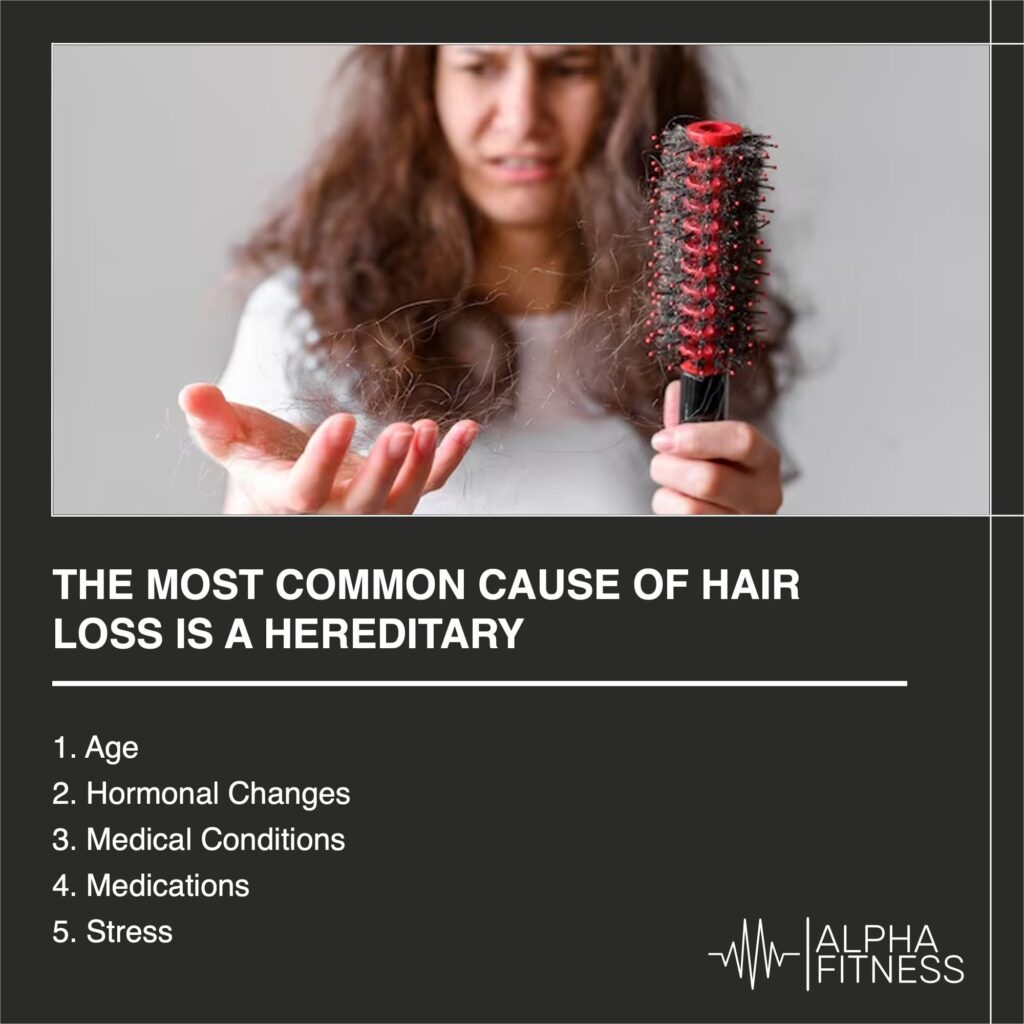
The most frequent cause of hair loss is hereditary, known as “androgenetic alopecia” in men and “female-pattern baldness” in women. This hereditary condition is primarily influenced by genetics and hormonal factors.
In male-pattern baldness, hair loss typically begins at the temples and crown of the head and progresses over time. In female-pattern baldness, hair thinning usually occurs on the top of the head, but the hairline is typically maintained. The exact mechanisms behind hereditary hair loss are complex and involve a combination of genetic predisposition and the hormone dihydrotestosterone (DHT), which can cause hair follicles to shrink and eventually stop producing hair.
While hereditary hair loss is the most common cause, there are other factors that can contribute to hair loss as well, including:
Age: Hair loss tends to become more common as people age.
Hormonal Changes: Hormonal fluctuations, such as those that occur during pregnancy, menopause, or as a result of certain medical conditions, can lead to hair loss.
Medical Conditions: Conditions like alopecia areata (an autoimmune disorder), thyroid disorders, and scalp infections can cause hair loss.
Medications: Some medications, particularly those used in chemotherapy, can lead to temporary or permanent hair loss.
Stress: Severe physical or emotional stress can sometimes trigger a type of hair loss called telogen effluvium.
Nutritional Deficiencies: Inadequate intake of certain vitamins and minerals, such as iron or biotin, can contribute to hair loss.
Hairstyling and Treatments: Frequent use of harsh hair treatments, tight hairstyles (like cornrows or tight ponytails), and excessive heat styling can damage hair and lead to hair loss.
It’s important to note that the approach to treating hair loss can vary depending on the underlying cause. For hereditary hair loss, there are FDA-approved treatments such as minoxidil (topical) and finasteride (oral) that may help slow down or partially reverse the process. However, the effectiveness of these treatments can vary from person to person, and not everyone will respond to them.
If you are concerned about hair loss, it’s advisable to consult a healthcare professional or dermatologist who can diagnose the cause and recommend appropriate treatments or interventions based on your specific situation.




One thought on “The most common cause of hair loss is a hereditary”